Uropi id Engli humòr - L'humour anglais - British humour
★ ★ ★
* Uropi Nove 67 * Uropi Nove 67 * Uropi Nove 67 *
★ ★ ★
★ ★ ★
De majsan France av probleme ki Engli humòr: lu dez te lu incèp ne ja o te je det ne la laro. Id Britine dez te France av nun sens humòri. Personim i find ja mol komic; i find Engli humòr de bunes in mold, oʒe is je det ne talvos ma laro; i men te humòr det priʒe va smijo.
I ve ne skrivo zi gren teorije ov humòr id Engli humòr; i volev solem dezo te je intèn du vezi elemente.
"Obwàn vist se molvos mali id koformisti, humòr se humanisti…" (Humour anglais, Wikipedia). Wim de Engli skrivor William Makepeace Thackeray dezì "Humour is wit and love", humòr se vist id liam. Oʒe in de pejes kaz (nar humòr po samp), humòr se nevos mali; je se talvos polen ki un eki melid do ji "viktìme".
"The best humour is that which contains most humanity, that which is flavoured throughout with tenderness and kindness…" Thackeray. De bunes humòr se daz we intèn de maj humanid, daz we se talim parfumen ki melid id bunad.
Obte generalim France prigùs vist id ironij we moj so mali id vuno id tudo (od wo de famos fraz "le ridicule tue": larlid tud), du France se po ma mol neri a Engli humòr: un se de poèt Jacques Prévert wej poème det ne va laro, ba smijo, id be som tem lu se polen ki melid. De alten se naturim de humorìst Pierre Desproges.
Dujim, in Engli humòr, je ste molvos, po ne dezo talvos, un apsurdi elemènt, de famos "nonsense" (ansìn) wen un find po samp in de storije pa Lewis Carroll (Alisa in Mirviziland) id in de filme pa Monty Python. Mojse France se tio razoni po aprìzo da apsurdi elemènt.
De maj noven samp Engli humòri se po ma wan de Britan Pri Ministor David Cameron deklarì te he vol organizo u referendum po pomozo a Britia laso de Europan Uniòn. Tale Europane su de kontinènt av nemen ha seriosim; lu se iran; lu av ne incepen te da sì solem Engli humòr.
★ ★ ★
Citroen - Picasso
★ ★ ★
La plupart des Français ont un problème avec l'humour anglais: ils disent qu'ils ne le comprennent pas et qu'il ne les fait pas rire. Les Britanniques, de leur côté, disent que les Français n'ont pas le sens de l'humour. Personnellement, je trouve ça très drôle; je trouve que l'humour anglais est le meilleur au monde, même s'il ne me fait pas toujours rire; d'ailleurs l'humour est plutôt censé vous faire sourire.
Je ne vais pas me lancer ici dans une grande théorie sur l'humour et l'humour anglais; je voudrais dire simplement qu'il contient deux éléments essentiels: "Alors que l’esprit est souvent méchant et conformiste, l’humour est humaniste…" (Humour anglais, Wikipedia). Comme dit l'écrivain anglais William Makepeace Thackeray "Humour is wit and love", l'humour est esprit et amour. Même dans le pire des cas (l'humour noir, par exemple), l'humour n'est jamais méchant; il est toujours rempli d'une certaine tendresse envers ses "victimes".
"The best humour is that which contains most humanity, that which is flavoured throughout with tenderness and kindness…" Thackeray: "Le meilleur humour est celui qui contient le plus d'humanité, qui est tout imprégné d'un parfum de tendresse et de bonté…"
Bien que les Français préfèrent en général l'esprit et l'ironie qui peuvent être méchants, qui peuvent blesser et même tuer (d'où l'expression: "le ridicule tue"), il y a pour moi deux Français qui se rapprochent le plus de l'humour anglais. L'un est le poète Jacques Prévert, dont les poèmes ne font jamais rire, mais sourire et sont toujours remplis de tendresse; l'autre est, bien entendu, Pierre Desproges.
En second lieu, on trouve souvent, pour ne pas dire toujours, dans l'humour anglais, un élément absurde. C'est le fameux "nonsense" des livres de Lewis Carroll (Alice au Pays des Merveilles) ou des films des Monty Python. Les Français sont peut-être trop rationnels pour apprécier cet élément absurde.
L'exemple d'humour anglais le plus récent a été pour moi la déclaration du Premier Ministre britannique David Cameron qui propose un referendum permettant au Royaume Uni de quitter l'Union Européenne. Tous les Européens sur le continent l'ont pris au sérieux; ils se trompent; c'est tout simplement de l'humour anglais.
★ ★ ★
"Framad" (Humòr se vist id liam)
★ ★ ★
Most French people have a problem with British humour: they say they don't understand it or that it doesn't make them laugh. British people, on the other hand, say the French have no sense of humour. Personally I find it very funny; I think British humour is the best in the world, even if it doesn't always make me laugh; I think humour is rather supposed to make you smile.
I am not going here to write a theory about humour and British humour; I would only like to say that it contains two essential elements. "Although wit is often spiteful and conformist, humour is humanistic…" (Humour anglais, Wikipedia), and as the British writer William Makepeace Thackeray said "Humour is wit and love". Even in the worst of cases (black humour for instance) humour is never wicked; it is always filled with a kind of tenderness towards its "victims". "The best humour is that which contains most humanity, that which is flavoured throughout with tenderness and kindness…" Thackeray.
Although generally the French prefer wit and irony which may be spiteful and hurt and even kill (hence the famous saying "Le ridicule tue", ridicule kills), two Frenchmen seem to me to be very close to British humour. One is the poet Jacques Prévert whose poems never make you laugh, but smile and are always full of tenderness; the other one is the French humorist Pierre Desproges.
Secondly, in British humour there is often, not to say always, an absurd element, the famous "nonsense" that can be found in Lewis Carroll's works and Monty Python's films. Perhaps French people are too rational to appreciate that absurd element.
The most recent example of British humour is, for me, when Prime Minister David Cameron declared he would organize a referendum to allow Britain to leave the EU. Everybody on the continent has taken him seriously; they are wrong: they haven't understood that it was just British humour.
★ ★ ★
De slogan sampe se siurim ne de bunes sampe Engli humòri; lu se solem u pri stap.
Les exemples suivants ne sont sûrement pas les meilleurs exemples d'humour anglais; ce ne sont qu'un premier pas.
The following examples are certainly not the best examples of British humour; they are only a first step.
★ ★ ★
Monty Python (Saiti Gral)
★ ★ ★
Engli humòr
★ ★ ★
" - Glad ka bel kupe wen ti frat kodavì mo jesta", dezì u man a hi maʒa.
- Verim mol bel. Ba lu se siurim ne kristali kupe.
- Parkà ne ? Kim kon tu de disemid ?
- Tu viz, i zav ne mol ov kristàl, ba i kon mi frat ʒe bun! "
* * *
" Look at those fine glasses your brother gave us yesterday", a man said to his wife.
"Very nice indeed. But they must not be crystal glasses."
"Why not ? How can you tell the difference ?"
"You see, I don't know much about crystal, but I know my brother so well!"
* * *
" Regarde ces beaux verres que ton frère nous a offert hier" dit un homme à sa femme.
"Très beaux en effet. Mais ce ne sont sûrement pas des verres en cristal.
"Pourquoi pas ? Tu sais faire la différence ?"
"Tu vois, je ne m'y connais pas beaucoup en cristal, mais je connais très bien mon frère!"
* * *
Un Amerikan milionor usklarì unvos a u fram.
- I av tri snivias in mi gardin: un se polen ki varmi vod, un alten ki frij vod, id de trij av talim ne vod.
- Talim ne vod ? Ka strani idea !
- Voj, je s' po mi maʒa: ce moz ne snivo.
* * *
An American millionaire once explained to a friend:
"I've got three swimming-pools in my garden. One is filled with warm water, another with cold water, and the third has no water at all."
"No water at all ! That's a funny idea!"
"Well, that one is for my wife: she can't swim."
* * *
Un milliardaire américain expliquait un jour à un ami:
"J'ai trois piscines dans mon jardin. Une est remplie d'eau chaude, une autre d'eau froide, et la troisième n'a pas du tout d'eau."
"Pas du tout d'eau ! Quelle drôle d'idée !"
"Celle-là, c'est pour ma femme: elle ne sait pas nager."
* * *
* * *
De servana.
Un jun ʒina av pen maʒen. Ekun prag co:
- Ka detì vu for vi maʒad ? Varkì vu ?
- Naturim, ruvòk de jun ʒina, i sì servana.
- Servana ! De metad doʒ so mol prijan, num !
- Ka metad ? protèst de jun ʒina, de uni disemid se te num i vid ne pajen.
* * *
A young woman has just got married. Somebody asks her:
"What did you do before your marriage ? Did you work ?"
"Of course I did", the young lady answers. "I was a servant".
"A servant! The change must be very pleasant, now!"
"What change ?" the young woman protests. "The only difference is that I work for nothing now".
* * *
Quelqu'un demande à une jeune femme qui vient de se marier:
"Que faisiez-vous avant votre mariage ? Vous travailliez ?
"Bien sûr", répond la jeune femme. "J'étais servante".
"Servante ! Le changement doit être très agréable !"
"Quel changement ?" dit la jeune femme en protestant. "La seule différence, c'est que maintenant je ne suis pas payée."
* * *
De uslivan aktora Helen Mirren in de film "The Queen" pa Spephen Frears
* * *
- I sper te tu av u bun rumenad po fase, dezì u man unvos a hi maʒa. I av pen breken de mirèl de baniu.
* * *
"I hope you have a good memory for faces", a man once said to his wife. "I've just broken the bathroom mirror."
* * *
"J'espère que tu as une bonne mémoire des visages" dit un homme un jour à sa femme. "Je viens de casser le miroir de la salle de bains."
* * *
- Je se stragi, doktor ! Mi maʒ se kovikten te he s'u frijèl. Id de pejes od tal se he sop ki hi muk opren … I moz nemaj uspero vizo da miki luc in hi gol.
* * *
"It's terrible, doctor! My husband is convinced he's a refrigerator. And the worst of it all is that he always sleeps with his mouth open… And I can't bear the sight of that little light, down his throat."
* * *
"C'est terrible docteur! Mon mari se prend pour un réfrigérateur. Et le pire c'est qu'il dort la bouche ouverte… Et je ne supporte plus de voir cette petite lumière dans sa gorge."
* * *
Ce s'ne nuki, Jake, ce se Franci
* * *
- Kerin, i doʒ uskono to ekwa, dezì de novimaʒen ʒina a ci maʒ. I av u dantar.
- Skur ne ov da ! Num, befènd, i moz nemo ap mi perùk, mi artimaken gam id mi glasi oj.
* * *
"Darling, I have a confession to make" said a newly-wed woman to her husband. "I have a set of false teeth".
"Don't worry about that. Now, at last, I can take off my wig, my artificial leg and my glass eye."
* * *
"Chéri, je dois te faire un aveu" dit la jeune mariée à son mari. "J'ai un dentier."
"Ne t'en fais pas pour ça ! "Maintenant je peux enfin enlever ma perruque, ma jambe artificielle et mon oeil de verre."
* * *
In de kamar Lordis, u lord kogòn un od hi frame in u koridòr.
- Mi keri fram, he dez, i se stragim dolan oro te vu doʒì ingrubo vi maʒa.
- Voj, vu zav, ruvòk de alten, i mozì verim ne deto altem.
* * *
At the house of Lords, a peer meets a friend of his in a corridor.
"My dear friend", he says, "I was awfully sorry when I heard you had had to bury your wife."
"Well, you know" the other answers. "I could not do otherwise…"
* * *
A la chambre des Lords, un lord rencontre un de ses amis dans un couloir.
"Mon cher ami", dit-il, "J'ai été terriblement désolé d'apprendre que vous avez dû enterrer votre épouse."
"Eh bien, vous savez", répond l'autre. "Je n'ai vraiment pas pu faire autrement…"
* * *
I se verim skuran ov de gresan uzad krediti kartis
* * *
U doktor sì skopan u man.
- I moz ne dezo ka it vo pej, he dezì fendim. Mojse je ven od uvepivad.
- Oh, je vez ne, dezì de man, i ve ruveno wan vu av ne piven.
* * *
A doctor was examining a man.
"I can't tell you what's wrong with you", he finally said. "It could come from heavy drinking."
"Oh, it does not matter" the man said, "I'll come back when you are sober again."
* * *
Un médecin examinait un homme.
"Je ne peux pas vraiment vous dire quel est votre problème", dit-il finalement. "C'est peut être dû à un excès de boisson."
"Oh, ça ne fait rien" dit l'homme, "je reviendrai quand vous n'aurez pas bu."
* * *
Su de kontinènt, liente av bun nure, in Englia lu av bun tabi manire.
George Mikes
* * *
On the continent, people have good food. In England, people have good table manners.
* * *
Sur le continent, on mange de bons plats. En Angleterre on a de bonnes manières à table.
* * *
* * *
- Ka se de bunes zoc po seto in peke ?
- Vi dante !
* * *
What is the best thing to put into cakes ?
Your teeth!
* * *
Quelle est la meilleure chose que l'on peut mettre dans un gâteau ?
Ses dents !
* * *
Be restoria
- Servor ! Av vu grocigame ?
- Oh ne, mi Sior; is i vad sim, je s' par mi reuma.
* * *
"Waiter, have you got frog legs ?
"Oh no, Sir; if I walk like that, it's only because of my rheumatism."
* * *
"Garçon, vous avez des cuisses de grenouille ?"
"Oh non, Monsieur; si je marche comme ça, c'est à cause de mes rhumatismes."
* * *
* * *
- Tu zav, kerin, i doʒ uskono to ekwa, dezì u jun ʒina a ci maʒ puntim pos de vedad, i s'u mol pej kokora. I moz oʒe ne koko patate.
- Verim ? Skur ne kerina, i doʒ os dezo to ekwa: i s' ane vark id nu av ne denie po kopo nure eniwim.
* * *
"You know honey, I've something to confess," a young woman said to her husband, just after the wedding ceremony. "I'm a very bad cook. I can't even boil a potato."
"Can't you ? Well, don't worry darling. I've something to tell you too. I'm out of work and we don't have money to buy food anyway."
* * *
"Tu sais mon chéri, je dois te faire un aveu," dit une jeune femme à son mari, juste après la noce. "Je suis très mauvaise cuisinière. Je ne sais même pas faire cuire les pommes de terres."
"Ah bon ? Ne t'en fais pas, ma chérie. Moi aussi je dois te dire quelque chose. Je suis au chômage et de toute façon nous n'avons pas de quoi acheter à manger."
* * *
Be restoria
De servor:
- Kim findì vu de mias, mi Sior ?
De klient:
- Oh, usfalim, je sì ude u patàt.
* * *
The waiter:
"How did you find the meat, Sir ?"
The customer:
"By chance; it was under a potato."
* * *
Le garçon:
"Comment avez-vous trouvé la viande Monsieur ?
Le client:
"Par hasard; elle était sous une pomme de terre."
* * *
De polk kon ne ji veri mogad
* * *
Be medikor
- Doktor, i jedì ostre po de pri vos jesta, id i se stragim pati… Oh mi vens ! Mi pavri vens !
- Mojse de ostre sì ne fric. Bemarkì vu ne u pej duf wan vu oprì la ?
- Oprì la ? Vol vu dezo te i doʒì opro la ?
* * *
"Doctor, I ate oysters for the first time, yesterday, and I am terribly sick. Oh! my stomach! My poor stomach!"
"Perhaps the oysters were not fresh. Did you notice a bad smell when you opened them ?"
"Open them ? Do you mean I had to open them ?"
* * *
"Docteur, j'ai mangé des huîtres pour la première fois hier, et je suis horriblement malade. Oh mon ventre! Mon pauvre ventre!"
"Peut-être que les huîtres n'étaient pas fraîches. Avez vous remarqué une mauvaise odeur en les ouvrant ?"
"En les ouvrant ? Vous voulez dire qu'il fallait les ouvrir ?"
* * *
Det nevos odia, wa tu moz pospero tis domòr.
Punch
* * *
"Never do today what you can put off till to-morrow."
* * *
"Ne fais jamais aujourd'hui ce que tu peux remettre au lendemain"
* * *
Pos Henrìk 8i pa Holbein
* * *
De ideal maʒ
U jun studana se trasan de portràt de ideal maʒi.
- De man wen i ve maʒo ve doʒo zavo santo, danso, retalo ceste. He ve stajo be dom tale vespene, he ve nevos pivo nè fumo. Id is i dez ho silo, he ve kluzo muk.
- Mi doj ! dez hi fram, wa tu vol se ne u maʒ, tu nud u televizèl !
* * *
A young student is drawing the portrait of the ideal husband:
"The man I'll marry will have to be able to sing, to dance, to tell jokes. He will stay at home every evening, he will never drink or smoke. And if I tell him to be quiet, he will shut up."
"Good Heavens" her boy friend says, "what you need is not a husband. You need a T.V. set!"
* * *
Une jeune étudiante fait le portrait du mari idéal:
"L'homme que j'épouserai devra savoir chanter, danser, raconter des histoires drôles. Il restera à la maison tous les soirs, il ne devra jamais boire ni fumer. Et si je lui dis de se taire, il se taira."
"Mon Dieu!" dit son petit ami, "ce qu'il te faut, ce n'est pas un mari, c'est un téléviseur!"
* * *
- Kerina, u Skot pragì a hi maʒa, kon tu de disemid intra u bus id u taksì ?
- Ne, ruvokì de maʒa
- Bun, sim, nu ve nemo de bus po faro ru dom.
* * *
"Darling, a Scotsman asked his wife, "do you know the difference between a taxi and a bus ?"
"No," said his wife.
"All right, then; we'll take a bus to go back home."
* * *
"Chérie", demande un Ecossais à sa femme, "connais-tu la différence entre un bus et un taxi ?"
"Non," répond la femme.
"Très bien, alors nous allons prendre un bus pour rentrer à la maison."
Miss Monty (Python)
* * *
U Franci turìst avì kopolem usvajen in de Londoni smog. Fendim he pragì a un alten pasvador.
- Moz vu dorego ma a Temiz, prijim ?
- Naturim, i moz. Je se puntim berù ma.
- Se vu siuri ?
- Aj, ʒe mol siuri. I av pen klimen us ja.
* * *
A French tourist had completely lost his way in the London smog. Finally, he asked another passer-by:
"Could you direct me to the Thames, please ?"
"Of course, I can. It's just behind me."
"Are you sure ?"
"As sure as eggs is eggs. I've just got out of it."
* * *
Un touriste français s'était complètement perdu dans le smog londonien. Finalement il a pu demander à un autre passant:
"Pouvez-vous m'indiquer dans quelle direction est la Tamise, s.v.p ?"
"Bien sûr. C'est juste derrière moi."
"Vous êtes sûr ?"
"Sûr et certain! J'en sors tout juste."
* * *
Be kina u kun sì spekan de film ki u gren interès.
Be fend de filmi u spekor dezì a de mastor de kuni.
- Je s' usordeni ! Kim moz u kun so interesen ov u film ?
- Je suprìz ma os, ruvokì de mastor, vu zav, he gusì talim ne de bib !
* * *
At the cinema a dog was watching the film with great interest.
At the end of the film a spectator said to the dog's master:
"It's extraordinary ! How can a dog be interested in a film ?"
"It surprises me too" the master answered. "You know, he had not liked the book at all."
* * *
Au cinéma un chien regardait le film avec un grand intérêt.
A la fin du film un spectateur dit au maître du chien:
"C'est extraordinaire ! Comment un chien peut-il s'intéresser à un film ?"
"Ça me surprend aussi" répondit le maître. "Vous savez, il n'a pas du tout aimé le livre."
* * *
Make tej, ne liam (Monty Python)
* * *
- Tri mone, u struor dezì a un arkitektor. I moz ʒe struo di has, ba je ve nemo tri mone.
- Tri mone ! Je s' tio longi, protestì de arkitektor. Oblase ne te mold vidì kreaten in ses dias !
- Naturim, je vidì. Ba kred vu verim te je s'u gren ustèl ?
* * *
"Three months," a contractor said to an architect. "I can build this house all right, but it will take three months."
"Three months! It's too long", the architect protested. "Don't forget the world has been created in six days!"
"Of course, it has. But do you really think it's a success ?"
* * *
"Trois mois," dit un entrepreneur à un architecte. "Je peux vous construire cette maison sans problème, mais ça prendra trois mois."
"Trois mois! C'est trop long", protesta l'architecte. "N'oubliez pas que le monde a été créé en six jours!"
"Bien sûr. Mais vous croyez vraiment que c'est une réussite ?"
* * *
Be hospitàl
U bel jun ʒina se leʒan in u hospitali led. U man vesten in bij ven vizo ca, traj ap de lenel id spek ca mol atensim.
- Men vu te un operad ve so nudi ? Ce prag ki un angosti voc.
- Kim moz i dezo vo ? Varte de doktor ! I se solem u pentor.
* * *
At the hospital
A good-looking young lady is lying on a hospital bed. A man, dressed in white, comes to her, pulls back the sheet and looks at her with great attention.
"Do you think an operation will be necessary ?" she asks in an anxious voice.
"How could I tell you ? Wait for the doctor. I'm only a painter."
* * *
A l'hôpital
Une belle jeune femme est allongée sur un lit d'hôpital. Un homme habillé de blanc vient vers elle, tire le drap et la regarde très attentivement.
"Vous croyez qu'une opération sera nécessaire ?" demande-t-elle d'une voix anxieuse.
"Comment voulez-vous que je sache ? Attendez le docteur. Je suis seulement le peintre."
* * *
* * *
De bunes zoc wen i kon intra Francia id Englia se de mar.
D.W Jerrold
* * *
The best thing I know between France and England is the sea.
* * *
La meilleure chose que je connaisse entre La France et l'Angleterre, c'est la mer.
* * *
Un ve mozo beprù vaizo aròn mold in tri hore: un hor po flevo, id de du altene po faro us de aviport.
Anenomi.
* * *
A man will soon be able to travel around the world in three hours: one hour for flying, and the other two to get out of the airport.
Anonymous
* * *
On pourra bientôt faire le tout du monde en trois heures: une heure de vol, et les deux autres pour sortir de l'aéroport.
Anonyme
* * *
I vaiz nevos ane mi diubib. Un doʒev talvos avo ekwa sensasioni po liso in tren.
Oscar Wilde
* * *
I never travel without my diary. One should always have something sensational to read in the train.
* * *
Je ne voyage jamais sans mon journal intime. Il faut toujours avoir quelque chose de sensationnel à lire dans le train
* * *
* * *
Du pienore stepì in u bus doregen a Piccadilly Circus. Un od la nemì u monet id tensì ja a u man in unifòrm. De man smijì prim, pos wim de pienor instajì, fendim he klajì irgim:
- Ka kred vu deto ? I s'un amiràl.
- Item us zi, spel ! de pienor dezì a hi kopanor; nu av i…i…iren. Di s'ne u b… bus, di s'u werinav !
* * *
Two drunkards stepped into a bus bound for Piccadilly Circus. One of them took a coin out of his pocket and handed it out to a man in uniform. The man smiled at first; then, as the drunkard insisted, he finally shouted angrily:
"What do you think you are doing ? I'm an admiral."
"Let's get out of here, quick," the drunkard said to his fellow; we have made a m…m…mistake. This is not a b…bus, it's a warship!"
* * *
Deux ivrognes montent dans un bus en direction de Piccadilly Circus. L'un deux prend une pièce dans sa poche et la tend à un homme en uniforme. L'homme commence par en sourire, puis comme l'ivrogne insiste, il s'écrie avec colère:
"Qu'est-ce que vous croyez faire ? Je suis amiral.
"On sort vite d'ici," dit l'ivrogne à son copain; "on s'est tr…tr…trompé. C'est pas un b…bus, c'est un ba…bateau de guerre!"
* * *
U man vidì mol suprizen vizo un od hi frame jegan cake ki u kun.
He mozì ne sia ruteno usklajo:
- Di kun se ʒe usordeni, verim !
- Talim ne, de mastor de kuni ruvokì; i vingì du vose id he solem unvos
* * *
A man was not a little surprised when he found one of his friends playing chess with a dog. He could not help exclaiming:
"This dog is quite exceptional, indeed!"
"Not at all," the dog's master answered. "I have won twice and he only once."
* * *
Un homme, très surpris de voir un de ses amis jouer aux échecs avec un chien, n'a pu s'empêcher de s'exclamer:
"Ce chien est vraiment extraordinaire !"
"Pas du tout," répondit le maître du chien. "J'ai gagné deux fois et lui seulement une fois."
* * *
Wallace id Gromit
* * *
Kurtim for de podibali matc inizì, un orì u kanoni stir, salutan de Major de poli itan in. Un od de spekore spritì op hi sed id pragì:
- Ka sì ʒe da ?
- Po de major, un ruvokì.
Puntim dapòs un orì de duj kanoni stir.
- Mi Doj ! klajì de spekor, lu misì ha, ne veri ?
* * *
Just before the football match began, the first salute gun was fired, as the Mayor of the town entered. One of the spectators jumped from his seat and asked:
"What was that ?"
"For the Mayor", was the answer.
Just then, the second gunshot was fired
"God!" cried the spectator, "they missed him, didn't they ?"
* * *
Juste avant le début du match de football, on entendit le coup de canon qui saluait l'entrée du Maire de la ville. Un des spectateurs sauta de son siège en demandant:
"Qu'est-ce que c'était ?"
"Pour le maire", répondit-on.
Peu de temps après on entendit le second coup de canon.
"Mon Dieu!' s'écria le spectateur, "ils l'ont raté, c'est ça ?"
* * *
Snev be eni kost
Un Amerikan milionor it in de prohàl u gren hoteli in Dakar, slogen pa u servan peran u par skijis.
- I fraj te vu av iren, dezì de procepora, vu ve nevos findo snev zi.
- Po ka nem vu ma ? Ruvòk de Amerikan, de snev slog in mi bagad!
* * *
An American millionaire enters the lobby of a big hotel in Dakar, followed by a servant carrying a pair of skis.
"I'm afraid you have made a mistake", the receptionist says. "You will never have any snow here."
"What do you take me for ?" snaps the American. "The snow follows in my baggage."
* * *
Un milliardaire Américain entre dans le hall d'un grand hôtel de Dakar, suivi d'un domestique qui porte une paire de skis.
"J'ai peur que vous n'ayez fait une erreur", dit le réceptionniste. "Vous ne trouverez jamais de neige ici."
"Mais vous me prenez pour qui ?" réplique l'Américain. "La neige suit dans mes bagages."
* * *


/https%3A%2F%2Fprofilepics.canalblog.com%2Fprofilepics%2F2%2F7%2F277026.jpg)

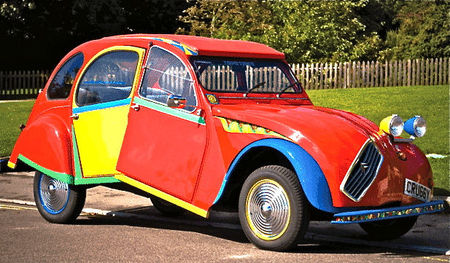

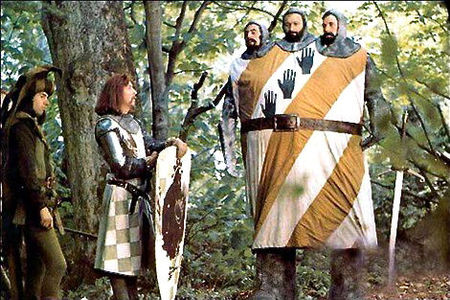










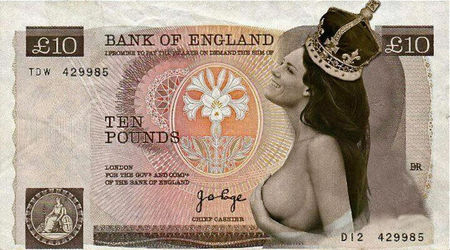

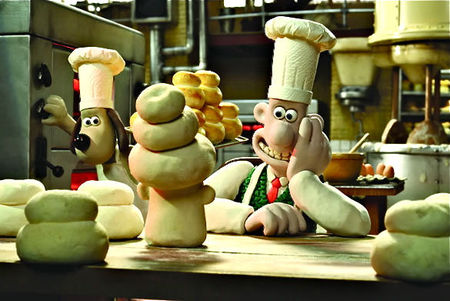
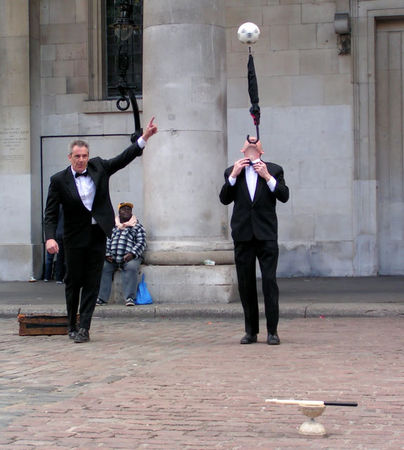


/https%3A%2F%2Fstorage.canalblog.com%2F31%2F61%2F321345%2F134515231_o.jpeg)
/https%3A%2F%2Fstorage.canalblog.com%2F19%2F44%2F321345%2F134293494_o.jpeg)
/https%3A%2F%2Fstorage.canalblog.com%2F01%2F79%2F0%2F134280602_o.jpeg)
/https%3A%2F%2Fstorage.canalblog.com%2F42%2F21%2F321345%2F133835185_o.jpeg)